

H-Index: 51
National Yang Ming Chiao Tung University
Taiwan

Xiong'an Institute of Innovation
Chinese Academy of Science
China

Gwangju Institute of Science and Technology
South Korea

Kansas State University
USA

H-Index: 69
Technical University of Moldova
Moldova

Lunghwa University of Science and Technology
Taiwan
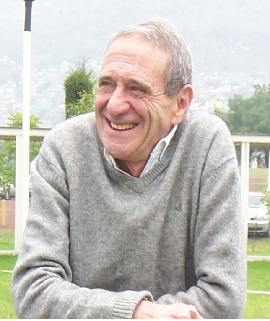
National Polytechnic Institute
Mexico

H-Index: 96
University of Technology Sydney
Australia
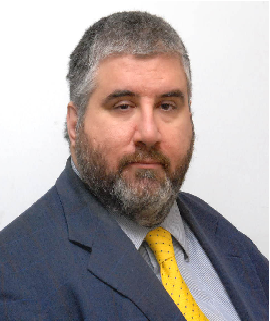
CEO, Managing Director
Halocell Europe
Italy

H-Index: 58
Catholic University of Brasilia
Brazil

East China University of Technology
China

H-Index: 41
Fudan University, Shanghai
China

H-Index: 43
Defence Institute of Advanced Technology
India

Xidian University
China

H-Index: 32
City University of Hong Kong
Hong Kong

Xi'an Jiaotong University
China

Alexandru Ioan Cuza University
Romania

Northeast Normal University
China

Xi'an Jiaotong University
China

INTI International University
Malaysia

University of Haute Alsace
France
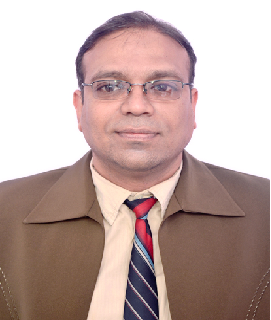
Ujjain Engineering College
India

Kharkiv Polytechnic Institute
Ukraine

Center for Research in Semiconductor Technology
Algeria
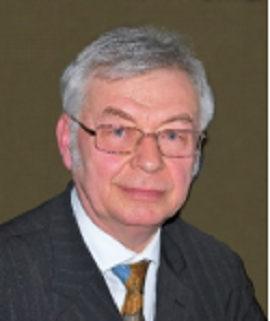
Professor Arturs Medvids works at the Institute of Technical Physics of Riga Technical University. In 2001 and 2017, he worked as an invited professor at Shizuoka University. He was awarded the title of Honorable Guest Professor in 2009 - 2019. He has 623 publications. He has participated at the 12th International Conference on Solid Films and Surfaces, 2005, in Hamamatsu, Japan and the 1st Conference on Nanocomposites, 2009, in Kerala, India, and at the Energy Materials Nanotechnology East Meeting, 2014, in Beijing, and Keynote Speaker at the 19th Nano Congress for Next Generation, 2017, in Brussels. He got the IAAM Medal at the AMWC 2018 conference in Singapore.
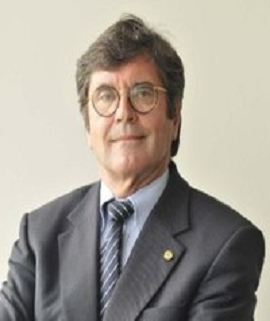
H-Index: 116
Excecutive Director at Bimberg Chinese-German Center for Green Photonics
Founding Director at Center of Nanophotonics, TU Berlin
Germany
Dieter H. Bimberg is the Founding Director of the Center of Nanophotonics at TU Berlin. He was chairman of the Department of Solid-State Physics at TUB from 1991 to 2012 and was holding the chair of Applied Physics until 2015. He is presently Executive Director of the “Bimberg Center for Green Photonics” of the Chinese Academy of Sciences at CIOMP, Changchun. His research interests include the growth and physics of nanostructures and nanophotonic devices, ultrahigh speed and energy efficient photonic devices for information systems, single/entangled photon emitters for quantum cryptography and ultimate nanoflash memories based on quantum dots. He has authored more than 1500 papers, 60 patents, and 7 books resulting in more than 56,000 citations worldwide and a Hirsch factor of 106 (@ google scholar). His honors include the Russian State Prize in Science and Technology 2001, his election to the German Academy of Sciences Leopoldina in 2004, to the Russian Academy of Sciences in 2011, to the American Academy of Engineering in 2014, to the American Academy of Inventors 2016, He was elected as Fellow of the American Physical Society, IEEE and Chinese Optical Society in 2004, 2010 and 2022, respectively. He received the Max-Born-Award and Medal 2006, awarded jointly by IoP and DPG, the William Streifer Award of the Photonics Society of IEEE in 2010, the UNESCO Nanoscience Award and Medal 2012, Heinrich-Welker-Award 2015 and Nick Holonyak jr. Award of OSA in 2018. In 2019 he received the IEEE Nishizaza Award and Medal. The University of Lancaster (UK) and the St. Petersburg Scientific University of the Russian Academy of Sciences bestowed honorary doctorates to him.
Dr. Bin Yu is Fellow of IEEE and Fellow of National Academy of Inventors (NAI). He is Director of FSRI and Distinguished Professor at Zhejiang University with research interests in the field of nanoelectronics/nanomaterials. Specific interests include brain-inspired computing, next-generation information devices, nanosensors, and other emerging technologies. He has authored/co-authored 8 book/book chapters, more than 300 research papers, and was the speaker of more than 150 invited speeches to conferences, universities, and industry around the world. As one of the prolific inventors in nanotechnology, he has more than 300 international patents. Dr. Yu is/was Executive Co-Chair of CSTC, consulting professor at Stanford University, and served on the invited panels and advisory/organizing committees of numerous international conferences and symposia. He was Editor of IEEE Electron Devices Letters, Associated Editor of IEEE Transactions on Nanotechnology, Editor of Nano-Micro Letters, and Guest Editor of IEEE Transactions on Electron Devices and IEEE Transactions on Nanotechnology. He made a number of world records in ultra-scaled transistors. Dr. Yu received Ph.D. degree in Electrical Engineering from University of California at Berkeley.
John Zhou holds a PhD in environmental technology at UMIST in 1991 and had a research career in the UK and Australia. John Zhou's research expertise covers environmental sampling, trace analysis, remote sensing of vehicle emissions, advanced wastewater treatment using chemical oxidation, reduction by nano zero-valent iron, adsorption, biodegradation and photocatalysis, and energy recovery from waste.
Dr. Ling Zang is a USTAR professor at University of Utah affiliated with the Department of Materials science and Engineering. He is a Fellow of the National Academy of Inventors, the American Association for the Advancement of Science (AAAS), and the Royal Society of Chemistry, was previously an Alexander von Humboldt Fellow, NSF CAREER Award winner, and K. C. Wong Foundation Research Fellow. Dr. Zang earned his B.S. in physical chemistry from Tsinghua University and Ph.D. in chemistry from the Chinese Academy of Sciences. His current research focuses on several areas, including nanoscale imaging and molecular probing, organic semiconductors and nanostructures, metal organic frameworks, porous graphitic carbon materials, and the applications in chemical sensors and nanodevices. These research endeavors aim to address critical problems in the fields of health, environment, and public safety. Dr. Zang has been awarded various grants from federal funding agencies (e.g., NSF, DHS, DOE/ARPA-E, NIH, NASA, etc.), industries (e.g., Gentex), and private organizations (e.g., Gates Foundation) to support his broad range of research in nanoscience and nanotechnology. Beyond the regular faculty duty on campus, Dr. Zang also remains active in organizing and chairing the nanotechnology sessions of various national and international conferences, and reaching out to K-12 students and publics for education of nanotechnology and the impacts to society and industry. Dr. Zang also strives to foster the technology transfer and commercialization. Since joining the faculty of the University of Utah in 2008, his lab has developed over 40 IPs, and more than half of these IPs have already been licensed to industry for development into chemical detectors and other devices. Dr. Zang has previously founded two University startups. Vaporsens, Inc., and Metallosensors, Inc., both based on innovations in sensor technology in his laboratory. Vaporsens develops nanofiber sensors for gas-phase chemical detection for homeland security, defense, public safety, and air quality monitoring. Metallosensors is focused on trace detection of heavy metal pollutants in water. In 2022, he co-founded with colleagues another startup, Novus Analytical Technologies, to develop and commercialize new generation of liquid chromatography techniques for realtime onsite analysis of water and bio-samples.
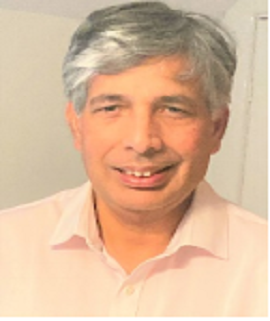
Shashi Paul, Professor of Nanoscience and Nanotechnology, is working for the Emerging Technologies Research Centre (EMTERC) at the University of Montfort, Leicester, UK. He received his degree from the Indian Institute of Science (IISc), Bangalore (India) and previously worked at the University of Cambridge, Durham University and Rutgers University. He has an extensive experience in the field of deposition of nano-sized organic and inorganic materials in the context of their applications to electronic memory devices, thin film transistors, biological & chemical sensors and energy related devices. His particular focus is on the development of materials manufacturing processes to reduce the carbon footprint and next generation electronic devices.

Jianchang YAN PhD, Professor, Research and Development Center for Wide Bandgap Semiconductors, Institute of Semiconductors, Chinese Academy of Sciences (CAS). Prof. Yan received his bachelor degree at Tsinghua University in 2004, and PhD degree in Microelectronics and Solid-State Electronics at the University of Chinese Academy of Sciences. He has been working in CAS since 2009. During 2015-2016 he was a visiting scholar in Paris Sud University. He is leading the III-Nitride ultraviolet light-emitting device group in CAS, focusing on the research of ultraviolet light-emitting diodes (UV-LEDs) and UV laser diodes (LDs). He is also the co-founder of the Advanced Ultraviolet Optoelectronics company which is the leading provider of UV-LED products.

Will Update Soon..

Paulo C. DE MORAIS, PhD, was full Professor of Physics at the University of Brasilia (UnB) Brazil up to 2013, Appointed as UnB's Emeritus Professor (2014), Appointed as Guest Professor of Huazhong University of Science and Technology China (2011), Visiting Professor at Huazhong University of Science and Technology (HUST) China (2012-2015), Appointed as Distinguished Professor at Anhui University (AHU) China (2016-2019), Appointed as Full Professor at Catholic University of Brasilia (UCB) Brazil (2018), Appointed as CNPq-1A Research Fellowship since 2010, 2007 Master Research Prize from UnB, 2008-member of the European ERA NET Nanoscience Committee, Member of the IEEE-Magnetic Society Technical Committee, Senior Member of the IEEE Society, 2012 China's 1000 Foreign Expert Recipient, and 2012 Academic Excellence Award from Brazilian Professor's Union. He held two-years (1987-1988) post-doc position with Bell Communications Research New Jersey, USA and received his Doctoral degree in Solid State Physics (1986) from the Federal University of Minas Gerais Brazil. He graduated in both Chemistry (1976) and Physics (1977) at UnB.ProfessorMorais is member of the Brazilian Physical Society and the Institute of Electrical and Electronics Engineers IEEE. He has served as referee for more than 50 technical journals, takes part of the Editorial Board of more than 15 technical journals and has conducted research on nanomaterials for over 40 years. He has delivered more than 150 Invited Talks all over the World. He is known for his research in preparation, characterization and applications of nanosized materials (magnetic fluid, magnetoliposome, magnetic nanoemulsion, magnetic nanocapsule, magnetic nanofilm, magnetic nanocomposite, nanosized semiconductors, polymeric dots, carbon dots, and graphene quantum dots). With nearly 500 published papers in peer reviewed journals, more than12,000 citations and 15 patents, he has appeared in recent World ranking of top 1% scientists, such as 2020-Stanford, 2022-Research.com, and 2023-AD Scientific Index.
Chen Hsu received his Ph.D. in Materials Science from Oxford University in 1999. It is common for him to be a member of the editor-in-chief and editorial board. He is currently a professor in the Department of Semiconductor Engineering at Lungwha University of Science and Technology. Professor Chen Hsu and his colleagues have done many interesting research works in new semiconductors, hot- pressed superalloys, light-modulated nanoporous materials, superparamagnetics, in vitro biosensors, nanomedicine, metamaterial devices from microwaves and terahertz to optical frequencies etc... Materials and biomedicine are the focus of his research. At the meantime, Prof Chen Hsu has been now promoting next-generation microservers and developing software in various areas such as the original data generation process.
SJ Xu received his PhD degree in Department of Electronic Engineering from Xi’an Jiaotong University in 1993. He is currently a Changjiang Chair professor in Department of Optical Science and Engineering, School of Information Science and Technology, Fudan University. Prior to joining Fudan University, SJ Xu was a tenured professor in Department of Physics, University of Hong Kong (HKU). In the past double decades, he has fortunately obtained some important findings and developed theoretical models with significant impact (>180 particles with >8600 citations) in optics and optoelectronic processes of wide bandgap semiconductors.

Will Update Soon..

Will Update Soon..
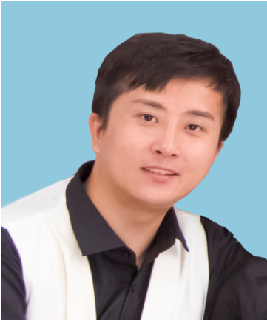
Fazhi Song is currently an Associate Professor at Harbin Institute of Technology (HIT), China. He received the Ph.D. degree in Control Science and Engineering from Harbin Institute of Technology, Harbin, China, in 2019. From March 2017 to March 2018, he was a joint- training Ph.D. student with National University of Singapore, Singapore. His research interests include system identification and motion control with applications to wafer scanners in lithography systems. He has authored and co-authored over 30 peer-reviewed academic papers published on high-level international journals such as IEEE TIE, IEEE TIM, IEEE TNNLS, and IEEE TMECH, been granted 25 invention patents, authored one academic monograph and developed three types of measurement and control software in this filed. He has led more than 10 research projects, including those funded by the National Natural Science Foundation of China and the Heilongjiang Province Excellent Youth Fund. He serves as a Youth Editorial Board Member of some journals, such as Instrumentation and China Measurement and Test. He is a member of IEEE Industrial Electronics Society, Chinese Association of Automation and China Instrument and Control Society. He has been honored with titles such as Heilongjiang Province Outstanding Youth and Heilongjiang Province High-level Talent. He has received the First Prize of the China Instrument and Control Society Technology Invention Award.

Dr. Wenbo Peng is now an Associate Professor at School of Microelectronics, Xi’an Jiaotong University. He received his PhD degree in major of Electronic Science and Technology at 2016 and bachelor degree in major of Microelectronics at 2010, from Xi’an Jiaotong University. He has been a visiting scholar in School of Materials Science and Engineering, Georgia Institute of Technology from Aug 2014 to Jul 2016, working on the research fields of piezotronics and piezo-phototronics under the supervision of Prof. Zhong Lin Wang. His research interests mainly focus on advanced low dimensional piezoelectric semiconductor materials, devices and physics, and novel intelligent sensing integrated chips. He has received several fundings from NSFC, Shaanxi Province and companies. He has authored and co-authored over 50 peer-reviewed journal publications in related research fields, parts of which are published on high quality international journals, including Advanced Materials, Advanced Functional Materials, Advanced Energy Materials, Nano Energy, ACS Nano, Nano Letters, etc. His publications have been cited over 2400 times, as documented at Google Scholar (h-index: 26). He has given several Keynote/Distinguished/Invited Talks in renowned international conferences. He is the Fellow of International Association of Advanced Materials.

Dr. Bingsheng Li is currently a professor in Northeast Normal University of China. He got his PhD degree from University of Chinese Academy of Sciences in 2002. From 2002 to 2012, he carried out research on MBE and PLD in National Institute of Advanced Industrial Science and Technology of Japan, The City College of the City University of New York of USA and University of Tokyo of Japan. In 2012, he joined Harbin Institute of Technology as a full professor. In 2019, he moved to Northeast Normal University where he focuses on the epitaxial growth of oxide and nitride thin films for photoelectronic application by MOCVD.
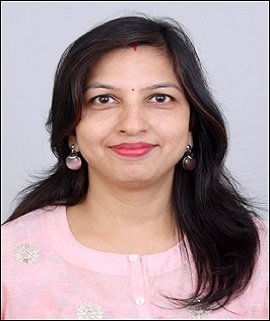
Dr. Seema Garg holds doctoral degree in Chemistry from Dr. B R Ambedkar University. She started her career in 2001 as a faculty member at UPTU Engineering College and joined Amity University Noida in 2011and is currently working as a Professor, Dept of Chemistry and Head, Student Affairs, Amity Institute of Applied Sciences, Noida. She has an extensive experience of 24 years to her credit. Her research interests involve synthesizing semiconducting nanomaterial using green methods for photocatalytic applications; degradation of recalcitrant organic pollutants, hydrogen generation, CO2 reduction to provide efficient and affordable solution to the industry. She has to her credit Eighteen PATENTSout of them 6 have been granted and published more than 60research papers in refereed journals with leading publishers. She is Editorial board member of Reaction Kinetics and mechanism, Springer Journal and Associate Editor of Frontiers Journal and Guest editor of Frontiers of Material Journal. She has published 15 book chapters with leading publishers viz Springer, Elsevier and Novaand published two books with Springer on Green Photo-catalytic material and Photocatalysis for Environmental Remediation and Energy Production, they have contributions from authors of 16+ countries and next booksAdvanced Nanomaterials for Environmental & Biological Applications are under process. She has spearheaded the prestigious DST-NRDIO sponsored bilateral Indo-Hungarian Research Project(2016-2020) with a cumulative funding of 1.74 Crore. She has bagged a second DST-NRDIO projectin 2021 with Prof Pravin, and Prof Sameer, IIT Delhi. She has completed a Consultancy Project with Dr Amrish Chandra, AIP, Amity on Evaluation of Anti-microbial peptides, University of Sapienz, Rome. She has been invited as a speaker to present her ground-breaking research in many conferences Nationally and Internationally. She has been invited as a research scientist thrice at University of Szeged, Hungary, Europe where her work was well appreciated. During her visit to Hungary, shewas awarded a certificate of appreciation as a Principal investigator of exemplarily collaboration by University of Szeged, Hungary in June 2019. She was Invited as an expert on Door Darshan Science, Initiative of Department of Science and Technology (DST), Govt. of India, implemented and managed by Vigyan Prasar (VP) to join their Flagships show "Science this week" on the Topic: “Science behind Degradation of Recalcitrant Organic pollutants in water and hydrogen generation from water splitting using Green Material” the program was telecast in April 2021 on Door darshan.https://www.youtube.com/watch?v=UeCftsPgxtY&t=1223s She has been initiator & drive engine to formulate MoUs with “University of Szeged, Hungary &University of Miskolc, Hungary”has helped stir the career of many students by helping them to get research scholarship and continues to do so. 10 students have already completed their major project and summer internships from Hungary and three (Harshita, Mohit and Nikita) are doing Post doc after completing their PhDs under joint supervision of Hungarian Scientists and Seema Garg. She is actively involved in International collaborative research with Hungary, Italy, Germany, Austria and Russia.

Will Update Soon..

Will Update Soon..

Will update soon..
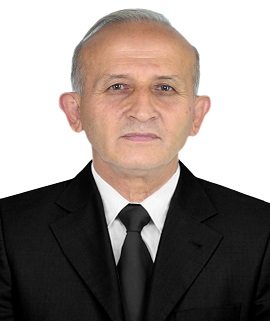
Otajonov Salim Madrahimovich, Fergana State University, Professor of Physics and Mathematics, Doctor of Sciences, deals with the fields of optical, photoelectric phenomena, tensometric phenomena, optoelectronics, nanoelectronics in semiconductors.

N. Jeong has her expertise in the fields of energy and environment. Especially. His research is focused on development of high-performance materials and new stack design. The foundation is based on the Korea Institute of Energy Research and the National Research Council of Science & Technology (NST) that are grant by the Korea government (MSIT). · Research Interest: Reverse electrodialysis, Seawater direct electrolysis, electrocatalysts, nano-carbons.

Belal Salameh is an Associate Professor of Physics at Kuwait University, Kuwait. He earned his PhD from the University of Stuttgart, Germany, in 2005. Then he worked as a postdoctoral researcher at the University of South Paris and TU Berlin for two years. He later joined Tafila Technical University in Jordan before moving to Kuwait University in 2014. His research focuses on the development of semiconductor materials for optoelectronic applications and the synthesis and characterization of thin-film semiconductors. Abdel Khaleq Mousa Alsmadi is an Associate Professor of Physics at Kuwait University, Kuwait. He earned his PhD from the University of New Mexico in collaboration with Los Alamos National Laboratory in 2004. Following this, he worked as a postdoctoral researcher at Argonne National Laboratory for one year. He later joined Hashemite University in Jordan before moving to Kuwait University in 2013. His research focuses on the development of semiconductor materials for optoelectronic applications, as well as the synthesis and characterization of thin-film semiconductors.
Choose Your Pricing That Fits You Best
Budapest, the capital of Hungary, is a captivating city that straddles the Danube River in Central Europe. It is renowned for its stunning architecture, rich history, and vibrant cultural scene. The city is divided into two parts, Buda and Pest, each with its unique character and attractions.